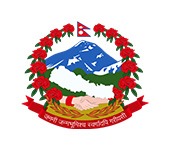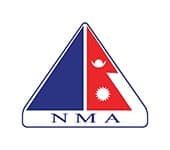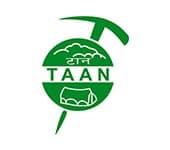In the price we will offer you for your trek (price including tax), the following services are included:
1. Reception at Tribhuvan International Airport,
2. Trekking permit for the trek region concerned,
3. Salary guide (s) and assistant (s) -guide (s),
3. The wages of the porters (15 kg of luggage per person),
4. The salary of the cooks during treks in camping,
5. All meals (3 per day plus a small snack), as well as unlimited hot drinks,
6. Roundtrip transportation to the airport for domestic flights, to Nepal or Tibet as well as airport tax. Bus trips in Nepal and Tibet, 4X4 trips in Tibet.
7. Trekking permits and insurance for all members of the management team (guide (s), porters, cooks).
8. The costs for the campsite.
9. Every night in a lodge.
10. Coordination and organization of any rescue, helicopters … (Provide repatriation insurance which covers rescue by helicopter, as well as any repatriation to the country of origin, read carefully the section “Prepare your trip – Insurance ).
The following services are not included:
1. The international flight from the country of origin-Nepal,
2. Travel and repatriation insurance,
3. Excess baggage during domestic flights (16 kg and 5 kg for hand luggage) .
4. Visa fees.
5. Cold drinks, alcohol and personal expenses during the trek.
6. Showers during the trek (indeed, showers, more or less hot, are payable in lodges).
6. Any tips given to the management team.
7. Site visits not included in the program.
8. Meals in Kathmandu.
Note: Airport taxes for international flights were abolished a few years ago in Nepal. They are therefore no longer on the agenda for the moment.
The hotel nights before and after the trek, as well as visits to Kathmandu and its surroundings can be included in the price offered by Siddhartha Trekking. Just mention it to us. Many customers choose this option. See below for more information.
Important: 25% of the total amount of your trek will be required when booking.
| We draw your attention to the fact that our guides and porters receive a decent salary, and are properly equipped. We do not entrust them with more than the regulatory load, i.e. 30 kg of luggage per carrier. Some trekking agencies attract customers with very competitive rates. But of course they do so at the expense of the wages, safety and health of their staff. |
Accommodation:
In Kathmandu, we usually book a hotel in Kapan for our customers. A neighborhood a little far from the city center, very close to the big stupa of Buddhanath, and which has the advantage of being much more pleasant.
However, the hotel park is huge in Kathmandu. If you want to make your own choice, just let us know.
In the trek, the lodges are more or less large houses with bedrooms and sometimes dormitories, which are quite comfortable overall. A common room is provided for meals. The toilets and showers are in most cases outside the rooms. There is no heating in the rooms, which are often poorly insulated. However, the dining room is very often heated.
The higher we go, the lower the comfort. The limited number of infrastructures on certain treks or parts of treks still obliges us to stop there, but in general, we do our best to select the best of them.
If you choose camping (or if you are forced to do so by the absence of lodges), you will be accommodated in two-person tents.
As we mentioned above, taking real showers is sometimes possible in some lodges. Sometimes, you are offered a large bucket of hot water, which will however make you happy! For a small supplement.
Food :
The Nepalese national dish is dal bhat, consisting of white rice, a lentil soup and a vegetable curry, sometimes accompanied by meat (often chicken).
During your trek, you will see your team eating dal bhat daily. You can join them. But you will also find soups, pasta, potatoes, eggs, often with vegetables (from the garden!). Sometimes meat.
You can also sometimes taste the famous “momos”, vegetable ravioli, or buffalo meat and even for tourists, yak cheese!
Whether in lodges, or prepared by your team if you are camping, the food is almost always the same (not spicy).
One day trek:
• Get up around 7am. It can be 4h or 5h in the morning when climbing the passes!
• Preparation of bags, storage of belongings. Porters generally leave before you, and take a meal break around 10am.
• Breakfast,
• Departure around 8 am, walk,
• Tea-cookie break around 10 am,
• Lunch between 11:30 am and 1 pm, depending on the stages, and short rest time,
• Walk until 3 pm, 4 pm, 5pm, depending on the stages,
• On arrival, “tea-cookies”, shower, relaxation,
• Dinner around 6.30pm or 7pm,
• Sleeping from 8pm (you go to bed early in the lodges …).
Domestic flights:
The progress of your trek can sometimes be disrupted due to bad weather conditions which prevent domestic planes from taking off. This is a fairly common phenomenon in Nepal, and we are dependent on these unpredictable events. Round trips by bus can in certain situations be considered.But it should be taken into consideration. Also, always allow a “margin” of 2 or 3 days before your international return flight.
You will always be accompanied by a French-speaking guide to whom you can share your concerns, questions, surprises, joys, before, during and after the trek.
Prepare to live a unique adventure, sometimes with its little unexpected too!







